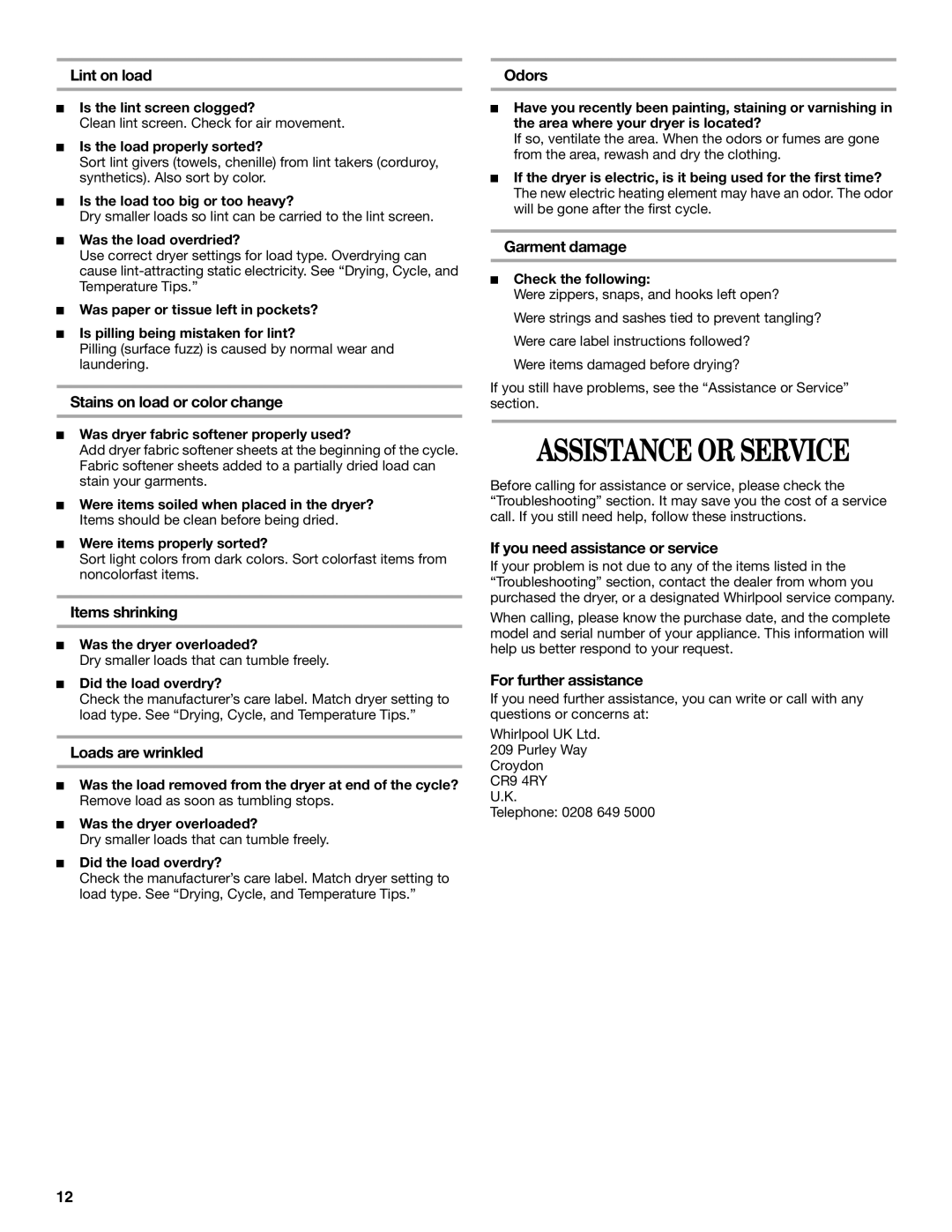
Lint on load
■Is the lint screen clogged?
Clean lint screen. Check for air movement.
■Is the load properly sorted?
Sort lint givers (towels, chenille) from lint takers (corduroy, synthetics). Also sort by color.
■Is the load too big or too heavy?
Dry smaller loads so lint can be carried to the lint screen.
■Was the load overdried?
Use correct dryer settings for load type. Overdrying can cause
■Was paper or tissue left in pockets?
■Is pilling being mistaken for lint?
Pilling (surface fuzz) is caused by normal wear and laundering.
Stains on load or color change
■Was dryer fabric softener properly used?
Add dryer fabric softener sheets at the beginning of the cycle. Fabric softener sheets added to a partially dried load can stain your garments.
■Were items soiled when placed in the dryer? Items should be clean before being dried.
■Were items properly sorted?
Sort light colors from dark colors. Sort colorfast items from noncolorfast items.
Items shrinking
■Was the dryer overloaded?
Dry smaller loads that can tumble freely.
■Did the load overdry?
Check the manufacturer’s care label. Match dryer setting to load type. See “Drying, Cycle, and Temperature Tips.”
Loads are wrinkled
■Was the load removed from the dryer at end of the cycle? Remove load as soon as tumbling stops.
■Was the dryer overloaded?
Dry smaller loads that can tumble freely.
■Did the load overdry?
Check the manufacturer’s care label. Match dryer setting to load type. See “Drying, Cycle, and Temperature Tips.”
Odors
■Have you recently been painting, staining or varnishing in the area where your dryer is located?
If so, ventilate the area. When the odors or fumes are gone from the area, rewash and dry the clothing.
■If the dryer is electric, is it being used for the first time? The new electric heating element may have an odor. The odor will be gone after the first cycle.
Garment damage
■Check the following:
Were zippers, snaps, and hooks left open?
Were strings and sashes tied to prevent tangling? Were care label instructions followed?
Were items damaged before drying?
If you still have problems, see the “Assistance or Service” section.
ASSISTANCE OR SERVICE
Before calling for assistance or service, please check the
“Troubleshooting” section. It may save you the cost of a service call. If you still need help, follow these instructions.
If you need assistance or service
If your problem is not due to any of the items listed in the
“Troubleshooting” section, contact the dealer from whom you purchased the dryer, or a designated Whirlpool service company.
When calling, please know the purchase date, and the complete model and serial number of your appliance. This information will help us better respond to your request.
For further assistance
If you need further assistance, you can write or call with any questions or concerns at:
Whirlpool UK Ltd.
209 Purley Way
Croydon
CR9 4RY
U.K.
Telephone: 0208 649 5000
12
